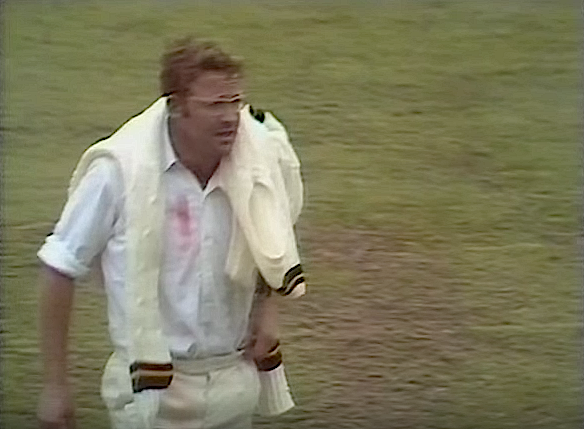Eddie ‘Bunter’ Barlow is our Legend of the Week, brought to you by Aquavita.
Barlow was born 12 August 1940 in Pretoria. His performances for Pretoria Boys’ High School earned him a spot in the SA Schools Side, and later his performances for University of the Witwatersrand earned him a call up to the South African Universities XI.
Due to his short, stocky build and round-framed spectacles, he earned himself the nickname Bunter, based on the fictional character Billy Bunter who was popular in the 1900s. This unique build later benefitted him to build a strong stance, helping him solidify his status as an opening batsman. His lower centre of gravity made him a nightmare to deal with for bowlers, as anything pitched short was cut or pulled away to the boundary.
His first-class career started in 1959, when he made his debut for Transvaal B, scoring 72 at No 4 against Griqualand West. His strong competitive nature and drive to win was undeniable, and when he was called up to the Transvaal first team he had to face a new challenge with the ball in hand. In the final match of that season, he scored an unbeaten 110 and took five wickets, portraying an amazing sense of self belief and mental strength.
He joined the young Fezelas team in 1961 on their tour to England, when he scored his first century as an opening batsman in first-class cricket. He played 268 first-class matches, scoring 18 212 runs consisting of 43 centuries and 86 half-centuries. Despite his reputation as a batsman, he took 571 wickets in 283 matches with an economy of 2.59.
Barlow was part of the famous South African side who housed names such as Graeme Pollock, Barry Richards and Mike Procter who all excelled for their country in the late 1960s. Even amongst these cricket legends, Barlow found a role in this all-star team playing 30 Tests, scoring 2 516 runs and taking 40 wickets. These figures consisted of six 100s, including a high score of 201 and 15 half-centuries. Whether his teammates played under his captaincy or along side him, his incredible drive to win and succeed rubbed off on everyone around him.
In 1976, he tested the waters overseas, playing for Derbyshire, taking over the captaincy as well as leading them to the Benson & Hedges Cup final in 1978. He played 36 Matches, scoring 11 190 runs and taking 68 wickets across all competitions in the 1978 season.
After retirement, Barlow reflected that same aggression and determination he emulated in cricket, expressing his strong liberal views against apartheid. After becoming director of the South African Sports Office in London, he went on to coach Gloucestershire for two years departing after his fathers death. His stint as a coach for his homeland, Transvaal, helped him become the first coach of the Juice Academy, which acted as a feeder of talent to Western Province and Boland cricket.
Berlow continued to be a great example and ambassador for cricket in his humble way of life. He suffered a stroke in 2000 which affected him drastically but never stopped him from living his life and giving back to the game as coach even from a wheel chair.
Eddie Barlow passed away 30 December 2005 after suffering a brain haemorrhage, and will always be remembered as a legend of cricket.







